
Мария Дубовикова
Мария Дубовикова - Президент и основатель IMESClub
The war on terror needs new strategies
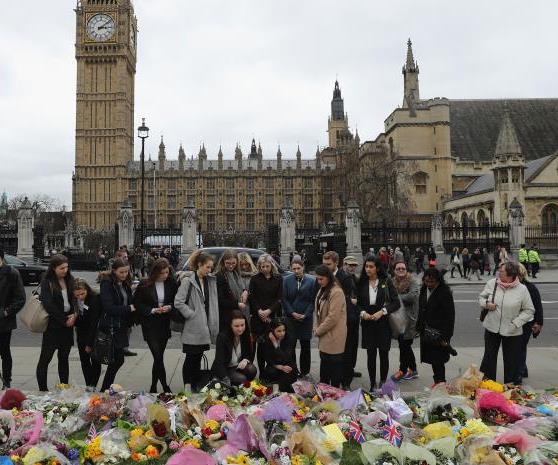 A close friend of mine lives and works in London. Her message to me on the day of the terrorist act near Westminster was: “I’m afraid to leave the office. Everybody is alarmed.
A close friend of mine lives and works in London. Her message to me on the day of the terrorist act near Westminster was: “I’m afraid to leave the office. Everybody is alarmed.
Terrifying. It’s London’s turn now.” The terrorists are moving the frontlines, step by step, closer to the homes of those who fight them, yet these countries still insist that evil will end with the fall of Raqqa. They are wrong.
The international community has been treating the symptoms of this deadly disease, not the disease itself. As a result, terrorism has mutated. Radicalism is common to all religions, but Islam’s image has been damaged the most by it. The core of Islamic radicalism is more political than religious, and initially grew due to dramatic regional turbulence, caused particularly by Western interventions without a proper understanding of the Middle East.
This created an environment conducive to the spread of dangerous ideas, turning religion into an instrument of manipulation. Muslims became pawns in a dangerous game, a brainwashed army without the capacity to think. The same is happening in Western societies due to the implementation of multiculturalism without proper integration policies.
Immigrants had to lose their old identity but did not get a new one. The same is happening with their children but on a new level. Cognitive dissonance and a feeling of injustice felt by the children of less fortunate immigrants can easily radicalize them. Thus Islam is proposed as an instrument of self-identification that can help them find their place.
Radical preachers and recruiters of terrorists, Daesh in particular, take advantage of this discontent in their propaganda and indoctrination. In particular, they hammer home the fact that Western countries have ruined the countries of immigrants, who are then humiliated and discriminated against by infidels when they have to move to the West. From the viewpoint of the target audience, that is exactly how it looks in many cases.
The new face of terrorism is far more dangerous than before, and can hardly be tracked by security services. It comprises lone wolves with minimal equipment, and small groups of mostly home-grown terrorists operating in European cities. It is time the West recognize this, tackle it properly, and come up with better policies for immigrant integration.
Despite Daesh taking responsibility for the attack in London, security services failed to find ties between the attacker and any terrorist organization. Daesh as a fading structure is using terrorist acts inspired, not directed, by it as a PR tool. The cheap attempt by some media to indirectly blame Saudi Arabia by saying the suspect visited the Kingdom at least twice is clumsy, because every Muslim wishes to visit Makkah at least once in their life.
So far, the international community has failed to formulate an appropriate strategy to counter extremist ideology. Separate local initiatives are woefully lacking, while the ideology of radical Islam is spreading, taking advantage of new technologies. Via social media, recruiters and propagandists come in direct contact with youths and brainwash them.
At the same time, moderate Muslims appear utterly incapable of playing a constructive role in preventing the spread of extremist ideology and the disfiguring of Islam’s image. They appear totally detached from the youth, unable to find common ground with them, and unable to use modern technologies as effectively as radicals.
Traditional security measures cannot guarantee much under the current circumstances without a full-scale strategy to counter the spread of extremism at all levels. It is high time the international community admit the mistakes made. Nothing ends in Raqqa. The longer the international community tries to make the war on terror a PR stunt, the more unavoidable radicalism and terrorism will become.
Article published in Arab News: http://www.arabnews.com/node/1076236/opinion
The complications in Yemen
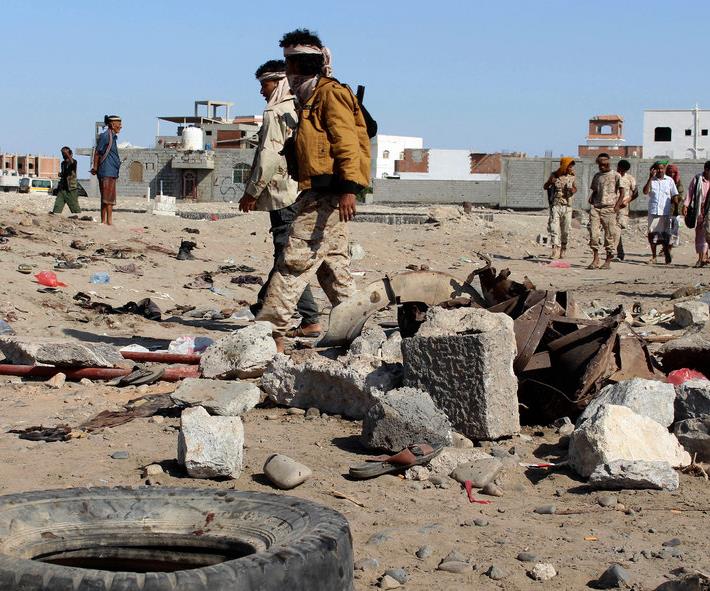 The Yemeni conflict is frequently called a forgotten war, because in terms of media coverage it is always overshadowed by Syria and Iraq. But its tragedy is no less serious, and has no justification; this is the only simple thing about the conflict. Politically and historically it is a complete mess, more so than the public imagines.
The Yemeni conflict is frequently called a forgotten war, because in terms of media coverage it is always overshadowed by Syria and Iraq. But its tragedy is no less serious, and has no justification; this is the only simple thing about the conflict. Politically and historically it is a complete mess, more so than the public imagines.Russia’s grave mistake of getting bogged down in sectarian mess
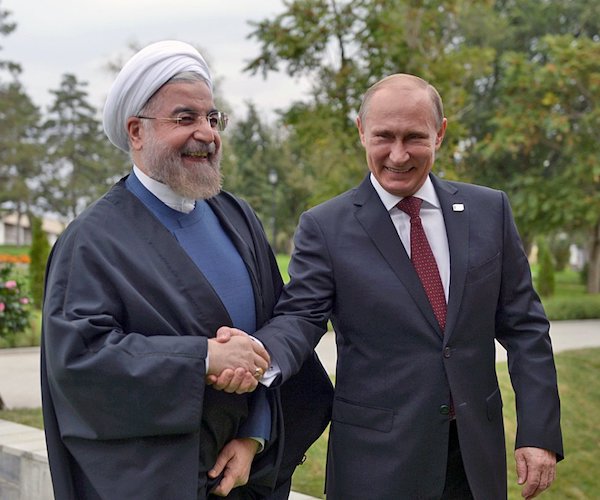 Russia’s foreign policy in the Middle East in recent decades was based on a harmonious approach that helped maintain good ties with all the players in the region without getting involved in political and sectarian wrangles.Russia’s involvement in Syria made this balance very difficult to maintain, since the Syrian conflict showed the sectarian and geopolitical fault lines of the regional powers.A main reason for the skewed balance now is Iran’s interference in Iraq and its multidimensional support for the Damascus regime, also given through groupings such as Hezbollah or other Shiite militias originating from Afghanistan and Pakistan.
Russia’s foreign policy in the Middle East in recent decades was based on a harmonious approach that helped maintain good ties with all the players in the region without getting involved in political and sectarian wrangles.Russia’s involvement in Syria made this balance very difficult to maintain, since the Syrian conflict showed the sectarian and geopolitical fault lines of the regional powers.A main reason for the skewed balance now is Iran’s interference in Iraq and its multidimensional support for the Damascus regime, also given through groupings such as Hezbollah or other Shiite militias originating from Afghanistan and Pakistan.
The Iranian involvement becomes more alarming as the conflict progresses. Tehran’s involvement in Syria and Iraq is clearly not limited to the “noble” causes of fighting terrorists, helping Syrian minorities or supporting and defending the “democratically elected president” against “terrorists.”Iran has always had far-reaching plans, primarily to counter major Sunni countries in the Gulf, chiefly Saudi Arabia, and change the regional balance of power.Iran is also pursuing its goal of exporting the revolution, which means, according to Hamid Reza Moghaddam Far, Islamic Revolutionary Guard Corps (IRGC) deputy commander of cultural affairs, “not sending advocates and preachers to other countries, but rather exporting the ideology.”This dubious export will go well beyond the Mediterranean.This ideology is brought in Iraq and Syria by gangs like Afghan Fatemiyoun Division, a Shiite militia fighting in Syria on the side of Assad regime.According to Tasnim News Agency, this division will stay involved in Syria for as long as Islam, read, in this case, Iran’s geopolitical ambitions, does not know borders; it “will always stand by Khomeini’s divine goals.”Iran is using Shiite Muslims as an instrument in its dirty game of expanding its influence and destabilizing Sunni neighbors.Saudi Arabia and its regional allies do not have any illusions about the troubles the Iranian expansion will bring them.Thus, by tragic coincidence, Syria has become a battlefield of rising sectarian regional tensions.The attempts to ease this sectarian conflict and careful messages of peace and detente coming from the western side of the Gulf are unheard, muffled by a roar of accusations coming from the Gulf’s eastern side.
It is not that Russia cannot cope with having Iran as a rival, particularly taking into account the latter’s difficulties on the global stage. By aligning with Tehran, Moscow seems to be on the wrong side of history.
Maria Dubovikova
Despite declarations of a balanced policy that keeps it friendly with everyone and does not allow it to build alliances, Russia is actually failing to maintain this policy in Syria, even despite its will, because it is being squeezed between the players there. The success of the Astana talks and the relative success of the new Geneva round only strengthened the Iranian position, especially after Iran was recently recognized as a guarantor of the cease-fire in Syria, leaving out GCC countries. True, the GCC countries were invited to take part in talks, but Saudi Arabia cannot accept the role of spectator and the other GCC countries will not get involved without this key Gulf power. UN Syria envoy Staffan de Mistura has been urging all foreign players in Syria to not turn the Syrian sides into pawns of their own game. Deputy Crown Prince Mohammed bin Salman’s visit to Washington signals the re-emergence of Saudi-US partnership. Moreover, it seems that in Syria, the two major players will try to overplay the until now successful trio. But is this a reasonable step? Due to certain circumstances, Russia appears to be on the same side with Iran in the Syrian game, even though it tries to stay relatively “impartial.” There is significant cooperation between Russia and Iran in many areas, boosted after Russia’s spat with Europe. Then, after all, Iran is a neighbor. It is also a dangerous rival and an absolutely unreliable friend. And between the two, Russia is choosing “an unreliable friend.” Yet it is not that Russia could not cope with having Iran as a rival, particularly taking into account the latter’s difficulties on the global stage.
Russia seems to be on the wrong side of history in this case, but it has few choices under the current shaky circumstances. The success of Astana and Geneva talks is greatly dependent on the relative friendship between Moscow and Tehran. And for Russia, it is a matter of honor to have the Syrian conflict solved through a political process. What should be clearly understood about the Russia-Iran cooperation is that there is no illusions about Iran in Moscow. Iran wishes to cooperate with the West more than with anybody else. Cooperation with Russia is not based on common values and long-term interests. There is a full pack of difficult to resolve issues between them. Iran poses an imminent threat to Russia’s interests. In Iran, there is a high level of discontent with Russia, especially its policy in Syria (that seems insufficient in Tehran’s eyes) and in all its policy toward Iran (which seems to Tehran not friendly enough: The nuclear plant is not build as fast as it was promised, the delivery of the notorious S-300s had been postponed for a long time, etc.) Currently, Russia’s answer to the question asked by Saudi Arabia — “Are you with us or with Iran?” — seems to be “with Iran.”
And expecting such an answer, the GCC is reinforcing the US presence and alliance in the region to counter Iran’s and its allies’ imminent threat. For Russia, as always, cooperation with Iran does not exclude an in-depth partnership with GCC, but Russia is interested in cooperating with the Gulf. With some GCC countries, like Qatar and Bahrain, relations are progressing well, while with other, they seem stuck or hostile, adding to the climate of mistrust. Russia is clearly making a grave mistake by getting bogged down deep in the sectarian mess and losing its impartial status, but it can hardly avoid it. But certain countries are making an even bigger mistake by expecting to overplay the existing trio, as deepening the geopolitical misunderstanding over Syria will plunge the region in an endless mess that costs dearly the civil population and the global stability. A great role Saudi Arabia could play, as a leading and powerful GCC state, would be to not urge the US to oppose the Russia-Turkey tandem, with an adjunct Iran, but to make Russia, Turkey and the US work together on resolving serious issues in Syria and Iraq, as well as to fight terrorism and minimize Iranian influence and role by actively taking part in all activities itself. That would be a worthy gambit, hardly expected, but benefiting the whole world.
Building a better tomorrow for the Middle East
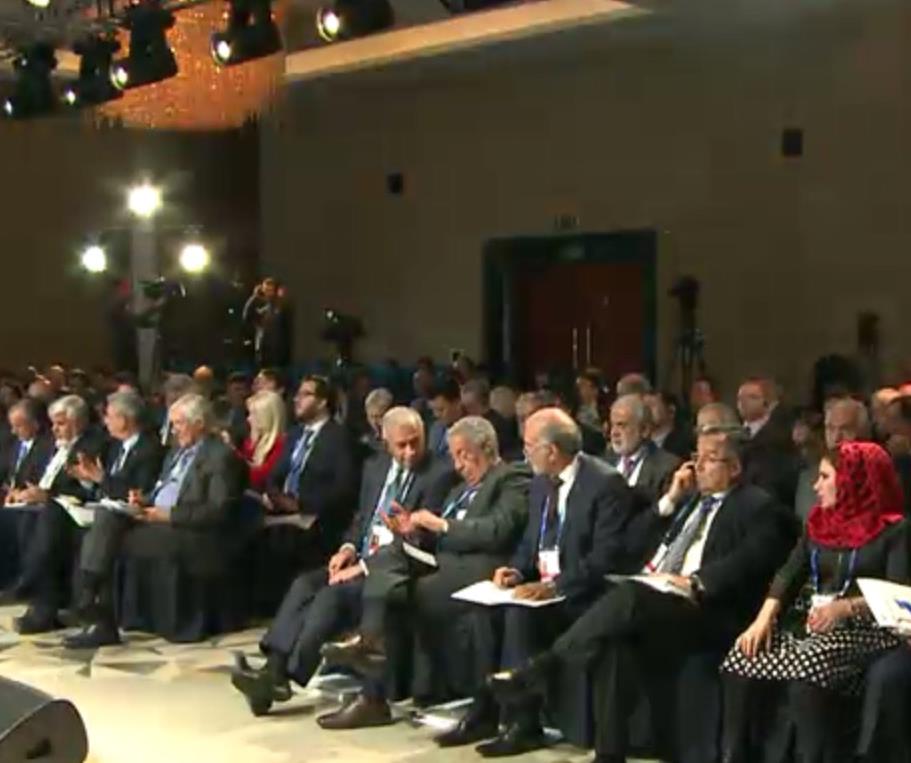 Prominent experts and high-level officials from Russia and all around the world have been trying to find the answer to the question: “The Middle East: When will tomorrow come?”
Prominent experts and high-level officials from Russia and all around the world have been trying to find the answer to the question: “The Middle East: When will tomorrow come?”
Russia’s annual Valdai Discussion Club — a prominent, marathon-like two-day dialogue on the Middle East — has just finished. The meeting, held in Moscow, united top officials and experts from Russia and all over the world, with vivid discussions on the burning issues involving the Middle East.
The Valdai format has once again proved to be an open platform for the free sharing of ideas, views and concerns. And what is more important is that it has proved that Iranians and Saudis, Palestinians and Israelis, and Turks and Kurds can be present in one hall, despite different religious beliefs, political views and affiliations. It shows they are able to talk, listen to each other, speak, peacefully argue, find common ground — and even joke and laugh.
The key topics on the table were Syria and Iraq, Yemen and Libya, the Arab-Israeli conflict, Iran and its place in regional affairs, and separately the issue of the Saudi-Iranian confrontation. They are the key issues that are forming the general regional environment and which have a serious impact on the global agenda and stability.
All these topics were approached from both regional and global perspectives, thus involving global players from the US, Russia, EU and even India and China.
The dialogue revealed several major characteristics of the current historical momentum.
First of all, we are living in a critical moment in history, with the emergence of a new world, the true nature of which is still not clear. Russia’s role in regional affairs is evolving, and is being re-evaluated with more constructive analysis, understanding and sane criticism, instead of a reaction of panic and fear.
Raghida Dergham — the founder and executive chairman of the Beirut Institute, columnist and New York bureau chief at Al-Hayat, and whose columns appear in Arab News — talked about the importance of Russia-US cooperation for the region. She also raised Iran’s role and ambitions in the region, notably in Syria.
Under the pressure of severe challenges the region is facing, there are signs of an attempt to put aside existing differences and make steps toward cooperation, facing up to the threats, and building the future the region hopes for.
At least that is what was clearly heard in the speeches of Amr Moussa, former secretary-general of the Arab League, Nabil Fahmy, former Egyptian foreign minister, and Ebtesam Al-Ketbi, founder and president of the Emirates Policy Center.
Fahmy has assumed that the majority of the regional challenges cannot be faced without the participation of the global players. But he cautioned that this participation and assistance should be constructive, not deepening the schisms with geopolitical games.
A reconciliation in a region facing major threats could be led by Egypt, traditionally taking the cornerstone role of stabilizing player, despite the severe internal crisis it is still going though following the shock of two revolutions in three years.
This call for regional reconciliation and cooperation is coming primarily from societies that are tired of confrontation and conflict.
Even the guests from Iran pointed out that there is a strong growing middle class in Iran, which is looking forward to modernization and a reconsideration of the policies toward the region and global players. Thus Iranian speakers gave hope for a change of Iranian policies in the foreseeable future. People are looking for peace, not for confrontation.
The last panel in the conference was entitled “The Future of the Middle East: In search of a common dream.” Politically the dreams of the governments are dividing, not uniting the sides. And from this perspective future prospects are quite gloomy, as long as the aspiration for dominance and power that prevails in politics continues, leading to more wars and confrontation. The dream of one government often eliminates the dream of another.
John Bell, director of the Middle East and Mediterranean Program at the Toledo International Center for Peace in Madrid, said we appear to be in a situation where there are a lot of dreams, but an absence of positive reality; some governments are manipulating Middle Eastern societies. But these same societies, political manipulation aside, are united by the same dreams of peace and prosperity.
This brings a crucial need for the emergence of civil societies that are able to form and determine the policies of governments. And the key to this lies in education, including training to resist propaganda and manipulation and teach critical thinking.
Thus, it is only through the perspective of such societies that the Middle East has a chance to pursue the common dream of peace. Governments stay and governments go. It is time to build bridges between the people.
Article published in Arab News
http://www.arabnews.com/node/1061826
Geneva IV: Paving the path to peace
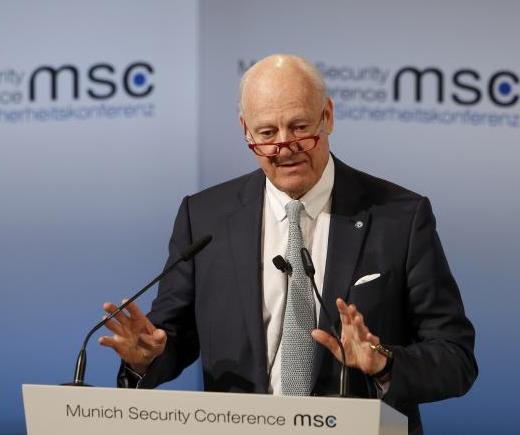 There is no longer unhealthy interest and agitation around the Geneva talks. Speculation and media manipulation have significantly decreased, enabling negotiators to concentrate more on negotiations than on popping cameras. No one expects a breakthrough from Geneva IV, but then it depends what is considered a breakthrough.
There is no longer unhealthy interest and agitation around the Geneva talks. Speculation and media manipulation have significantly decreased, enabling negotiators to concentrate more on negotiations than on popping cameras. No one expects a breakthrough from Geneva IV, but then it depends what is considered a breakthrough.
It is significant that for the first time in almost six years of bloody and devastating war, the government and inclusive opposition are ready for direct talks. Even though UN envoy Staffan de Mistura says he sees little common ground between the sides, the fact that they have matured to the point of overcoming mutual hatred and talking directly is promising.
Another positive sign is that thanks to the efforts of many players — including Russia, Turkey and Saudi Arabia — the opposition has reached the fourth round of talks more united than ever, and able to articulate its positions and demands without stalling each time due to internecine debates and disputes. Despite having little common ground, the sides seem keener on ending the war, concentrating on a political transition and fighting extremists.
Even Turkey, which had staunchly supported the opposition forces from the start of the conflict, has softened its position on the Syrian regime, admitting it is no longer realistic to insist on a solution that excludes President Bashar Assad. The fact that tough preconditions from the opposition side have disappeared from their political statements is also an important and promising sign. Removing a military solution to the conflict is a true breakthrough.
Much was done to make these achievements possible by Turkey and Russia after their own reconciliation. The Astana format, which served to back up the Geneva process, harmonized negotiations and enabled the possibility of direct talks.
The main problem is the ground forces that are not interested in a settlement of the conflict. These radicals and extremists are profiting from it. Jabhat Fateh Al-Sham, formerly Al-Nusra Front, is a major headache. Its infiltration of opposition ranks hampered Russia-US talks on the separation of radical groups and moderate opposition in east Aleppo. This paralysis led to rebel defeat in east Aleppo, which was a game changer in the conflict, at a high cost in human lives that could have been avoided.
Peace in Syria is not in the interests of extremist groups. For Daesh and other terrorists, the longer the conflict, the easier it is to radicalize and recruit. These groups could not survive in peacetime.
At the Munich Security Conference, De Mistura outlined the challenges the political process is facing, and provocations from parties that are playing spoiler. Players such as Russia and Turkey, which stand out as guarantors of the peace process, are working to elaborate mechanisms to minimize the impact of provocations and maintain the cease-fire, which is indispensable for any political process.
It is high time for Syrians to come up with a political settlement to end the violence, chemical attacks, atrocities and suffering. It is high time for the international community to join forces to help them do so.
Geneva IV will not result in breakthroughs that will immediately lead to a political process, but it could pave the way for such agreements. The political maturity of both sides gives hope for further involvement of civil society in negotiations, which will facilitate talks and an indispensable political transition.
International players should stop playing geopolitical games on the bones of innocent Syrians. The longer a political settlement is questioned by negotiating sides, and the longer the Assad regime listens more to Tehran than to Moscow, the stronger terrorist cells will become, and the harder it will be for the international community to fight them. The future of Syria and the world is at stake.
However, the start of a political process is no guarantee of peace. The devil is in the details, and disputes over many issues can lead to the continuation of the conflict in different forms. But no matter the risks and challenges, it is time for all Syrians to work together and remember that they are one nation, and that the key to peace lies only in their hands.
Article published in Arab News:
http://www.arabnews.com/node/1059851
Saudi-Russia relations in the emerging new world order
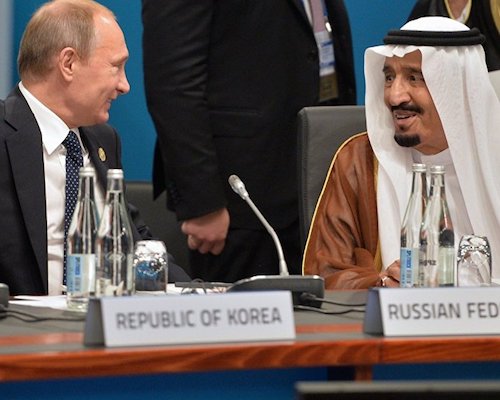 Following the launch of the ambitious Vision 2030, Saudi Arabia has started a new chapter in its history, turning itself from a US dependent indecisive closed shadow-country, to the mighty power of the Middle East, with enormous potential, strength, opening its doors to the whole world step by step.
Following the launch of the ambitious Vision 2030, Saudi Arabia has started a new chapter in its history, turning itself from a US dependent indecisive closed shadow-country, to the mighty power of the Middle East, with enormous potential, strength, opening its doors to the whole world step by step.
Saudi Arabia is intensifying its diplomatic efforts to change its perception to start a new era.
The kingdom uses current challenging circumstances as opportunities for taking a new path and succeed in it. It successfully diversifies its investment flows, thus putting money in different baskets. It attracts foreign technologies that assist with boosting innovation in the kingdom, and it lays the basis of its independence from natural resources. It invests significant money in youths, their studies in Western countries, because upon their return they will bring the most precious treasure - knowledge - that will contribute to the successful development of the country. Through all these moves the kingdom also cuts its dependency from the US - an ally that is becoming less reliable and less predictable. So diversification of political ties is also an important move of the country to become stronger and less dependent on vicissitudes of fate.
Russia is one of the partners of the kingdom in its far reaching ambitious plans is, however not such an evident one. Bilateral ties between Russia and Saudi Arabia are permanently developing the last couple of years opening new opportunities for both countries and their business circles, but not moving as fast as they really could. Potential of bilateral relations development is extraordinary. But this potential is not opened and not properly used.
Russian purposes in Syria are not clear for the Kingdom at all. Why does Russia declare that its military contingency in Syria is to fight terrorism, but ISIS stays, mostly unhindered by Russian fighter planes, Palmyra is lost again, but Russia announces ending its military contingency in Syria after the fall of Aleppo?
Maria Dubovikova
Bilateral ties, despite the more or less warm relations between the two governments, are dominated at least in the level of the two societies in general, by suspicions, mistrust and ignorance.
Facing barriers
Saudi business circles are very poorly informed about doing business in Russia. They face significant language barriers each time they try to find counterparts in Russia, due to the low level of English proficiency among Russians. Western media is their key source information about Russia, as long as there is no Russian media source in Arabic or English they consider reliable and of a high quality. The public opinion of Saudis is dominated by numerous traditional stereotypes - vodka, bears on the streets, Matryoshka - no one really tries to tackle from the Russian side.
Russian laziness and passiveness of business also does not add any positiveness in the situation. Another problem business risk facing each time coming to Russia is at the least being stuck with security officers for several hours in the airport, or at worst being deported right from the border in the Russian airport - even with the relevant visa. It is hard to explain that this can happen to all people coming from the Middle East because of security measures, as such a situation happens to innocent people coming to develop business ties, and it is humiliating and demotivating to do anything on this track. Also business circles are paralyzed by the restrictively short visas given, limiting their business opportunities.
Getting Russian visas is in general the talk of the town. I still remember how I was inviting my colleague from France to take part in a conference in Moscow, and she decided to go with her husband, thus applying for a business visa herself, following the official invitation, and her husband applied for a tourism visa. He was refused for strange reasons, as his wife was going for business reasons, he could not go for tourism. She was given a three-day visa.
Common interests
Nevertheless there are many common interests that can finally break down boundaries. Investment projects have all chances to be a true ram. However some political issues remain as sensitive points between the two countries. Two of them are Iran and Syria, and mostly they are connected.
For Riyadh, Russia’s close partnership with Iran is a reason for strong worries as it is considered as a threat for national interests. Mostly it is perceived as Moscow’s refusal to build on strong cooperation and friendship with the kingdom. This approach to the analysis is not right, however its roots are quite understandable.
In this context Russian cooperation with Iran in Syria raises many questions. The main being if Russia considers the possibility that Iranian geopolitical strengthening in the region through Shia communities has been used for its own interests, to bring destabilization of the region and sectarian wars?
Russian purposes in Syria are not clear for the Kingdom at all. Why does Russia declare that its military contingency in Syria is to fight terrorism, but ISIS stays, mostly unhindered by Russian fighter planes, Palmyra is lost again, but Russia announces ending its military contingency in Syria after the fall of Aleppo? These questions rarely receive properly articulated answers. And the problem is not even that there is nothing to say, but that Russia still does not pay much attention to the straight articulation of its positions and principles, that sometimes can have a feeling that it does not really know what it is doing and what the target is.
This vagueness creates a mistrust and an unwanted freedom to interpret as they choose. It also forms the climate where members at all levels are inclined to see the spread of obstacles, instead of forests of opportunities. Meanwhile positions of the two countries on many issues are common and can lay the perfect basis for an intense bilateral boost. The core is a proper communication and articulation of positions. Russia and Saudi Arabia both stand strong against terrorism, in the face of which both stay vulnerable.
In Syria both countries agree upon the need for a period under the control of the international community, the impossibility of Syrian federalization and fragmentation. Both countries consider the installation of a secular government in Syria important. In case of Iran Russia could play a role of a mediator between Riyadh and Tehran, assisting in easing of tensions and helping to build a constructive dialogue. As long as Donald Trump occupies the White House, Iran will supposedly become far more flexible and compliant.
No matter the difficulties experienced, the two countries have a mutual interest of developing bilateral ties and strengthening cooperation. But the main precondition of successful development of ties is firstly effective mutual prejudices fighting, the improvement of the climate of trust and fair cooperation.
Initially published by Al Arabiya English: https://english.alarabiya.net/en/views/news/world/2017/01/21/Saudi-Russia-relations-in-the-emerging-new-world-order.html
Двусторонние отношения России и Саудовской Аравии: взгляд из Эр-Рияда
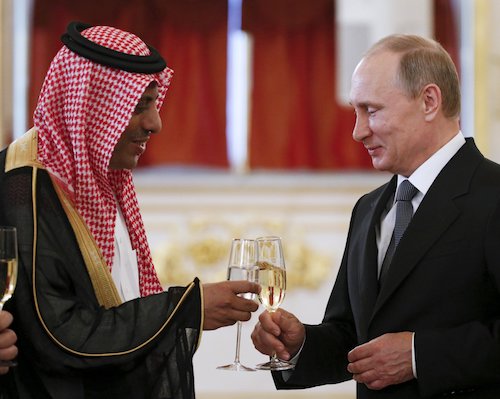 Саудовская Аравия в настоящее время уделяет серьезное внимание отношениям с Россией. Несмотря на существующие серьезные разногласия с Москвой по некоторым вопросам текущей повести дня, в первую очередь по Сирии, Саудовская Аравия по целому ряду каналов, официальных и неофициальных, на протяжении последнего года постоянно посылает позитивные импульсы взаимодействия и сотрудничества.
Саудовская Аравия в настоящее время уделяет серьезное внимание отношениям с Россией. Несмотря на существующие серьезные разногласия с Москвой по некоторым вопросам текущей повести дня, в первую очередь по Сирии, Саудовская Аравия по целому ряду каналов, официальных и неофициальных, на протяжении последнего года постоянно посылает позитивные импульсы взаимодействия и сотрудничества.
Королевство проявляет заинтересованность в двустороннем сотрудничестве во всех направлениях. Это касается и развития отношений в академической среде, культурной, деловой и экономической. Посольство работает над признанием российских дипломов о высшем образовании и ученых степеней. Уже на протяжении долгого времени Рияд пытается добиться двустороннего упрощения порядка выдачи виз для бизнесменов и инвесторов, что должно благотворно отразиться на деловом климате между двумя странами.
Однако большинство инициатив саудовской стороны оказывается в подвешенном состоянии, поскольку не находят должного отклика у представителей российских кругов принятия решений и у более широкой общественности. У саудовских партнеров это вызывает множество вопросов и ложится в основу недоверия и предрассудков. Но пока саудовская сторона не теряет энтузиазма и продолжает активно пытаться наладить мосты.
Эта активность, в частности, является результатом влияния Мохаммеда бен Салмана, и его призыва, обращенного к послам Королевства по всему миру, озвученного в 2016 году: уделять особое внимание изменению имиджа Королевства, донесению позитивного образа страны до широких масс, путем активизации PR и иных инструментов формирования имиджа. Россия не является исключением.
Во многом этот рывок – в сторону диверсификации контактов и связей, переход на инновационный путь развития, колоссальные вложения в науку, в частности через финансирование государством учебы молодых саудовцев за рубежом, сотрудничество с ведущими исследовательским центрами мира в области естественных наук, приборостроения и т.д. – является подготовкой Королевства к жизни не только без нефтяных ресурсов, как основного источника дохода государственного бюджета, но и жизни без США. Фигура Трампа, на фоне растущего правого движения, является мощным сигналом Королевству о необходимости задуматься о самостоятельном будущем и необходимости полагаться исключительно на собственные силы и возможности. Хотя этот сигнал был уже получен при Обаме. Диверсифицируя и укрепляя свои международные контакты Королевство рассчитывает снизить зависимость от Вашингтона и укрепиться экономически, говоря иносказательно, разложив свои деньги по разным корзинам – инвестируя в успешные проекты по всему миру с выгодой для себя.
Эр-Рияд заинтересован в интенсификации торгового и инвестиционного взаимодействия между двумя странами. Однако Королевство в этом случае сталкивается с двойной проблемой. Во-первых, недоверие саудовских инвестиционных и бизнес кругов к России, во многом из-за непонимания специфики ведения бизнеса, отсутствия надлежащего информирования (всю информацию о России саудовцы черпают из западной прессы), присутствие значительного числа негативных стереотипов о России (с которыми никто не борется), фактическую непреодолимость языкового барьера (крайне незначительное число россиян владеет английским на достойном уровне); и, во-вторых, визовые проволочки, которые ставят бизнесменов в крайне затруднительные ситуации, вынуждая проводить переговоры и встречи в крайне узкие сроки и сложности на пограничном контроле, когда каждую неделю при прохождении пограничного контроля в российских аэропортах, бизнесмены Саудовской Аравии с российскими визами в паспортах задерживаются на несколько часов, а подчас и депортируются обратно без объяснения причин. Пассивность российского бизнеса также не добавляет позитивных красок к текущей ситуации.
Что касается геополитической повестки, то, несомненно, существующие разногласия также оказывают влияние на двусторонний диалог. Однако исток этих разногласий находится в неведении, непонимании и сложной региональной ситуации. Больше всего Эр-Рияд беспокоит на чьей стороне Россия и на сколько плотно она собирается союзничать с Ираном. Непонятными для Эр-Рияда остаются цели России в Сирии. И каковы ее планы в регионе. Саудовская Аравия опасается, что Россия станет в регионе вторым США. И речь идет не об экономическом гегемонизме, а о деструктивной геополитической роли, которую США играли в регионе на протяжении десятилетий, и на счет которой государства аравийского полуострова не питают ни малейшей иллюзии.
Саудовская Аравия опасается, что Россия станет в регионе вторым США. И речь идет не об экономическом гегемонизме, а о деструктивной геополитической роли, которую США играли в регионе на протяжении десятилетий, и на счет которой государства аравийского полуострова не питают ни малейшей иллюзии.
В случае с российских отношений с Ираном для саудовцев вопрос сводится к очень упрощенной подаче вопроса: вы с нами или с ними. Для Эр-Рияда плотное сотрудничество Москвы с Тегераном является исключением сотрудничества с Королевством и формирование своего рода коалиции, угрожающей её жизненно важным интересам. Именно поэтому любые противоречия между Россией и Ираном, информация о которых просачивается в СМИ, с определенной степенью энтузиазма подхватываются телеканалами аравийского полуострова.
Обеспокоенность этим вопросом отражается и в ситуации с Сирией.
Между двумя сторонами по Сирии есть много общего. Обе выступают за территориальную целостность, сходятся в недопустимости допуска экстремистов к власти в стране, соглашаются и о необходимости транзита власти и политического процесса, под контролем международного сообщества. Схожих позиций по Сирии даже больше, учитывая, что Королевство, действительно, рассчитывает на светское правление в Сирии. Разногласия по большей части предопределены слабой информированностью саудовской стороны и высокой степенью недоверия и непонимания происходящего.
Саудовская сторона задается вопросом, какова итоговая цель России в Сирии. На тот гипотетический момент, когда конфликт будет по большей части урегулирован и придет время формировать новую Сирию и восстанавливать ее из руин: как Россия рассчитывает поступить с Хезболлой, которая не отдаст завоеванные позиции и влияние в стране, рассчитывает ли она, что Иран будет заниматься восстановлением страны и будет принимать активное участие в пост-конфликтной политической жизни, что с одной стороны не возможно, учитывая ограниченность финансовых ресурсов Ирана, во-вторых, контрпродуктивно. Осознает ли Россия, что прямое вмешательство Ирана в послевоенную Сирию автоматически приведет к усилению дисбаланса и конфликтности в регионе. Саудовская Аравия также не понимает в чем заключается российские заявления о борьбе с терроризмом в Сирии, если её удары сконцентрированы далеко не над позициями Исламского Государства, и после падения Алеппо Россия сокращает свое военное присутствие. По сирийскому вопросу в Эр-Рияде вопросов больше, чем ответов, и они в значительной степени усложняются тем, что ведут за собой еще больше вопросов и недопонимания по многим вызовам регионального масштаба за пределами сирийских границ. Это недопонимание распространяется на все страны, входящие в ССАГПЗ. Отсутствия внятной артикуляции позиций, адекватного донесения информации затрудняет процессы взаимодействия и коммуникации по многим направлениям двустороннего сотрудничества.
Несмотря на это и многие другие сложности у двусторонних отношений есть хорошие предпосылки для развития в меняющемся международном контексте при условии улучшения коммуникации, честного взаимодействия и преодоления существующих предрассудков.
Мария Дубовикова
Can the new UN chief help resolve the Syrian crisis?
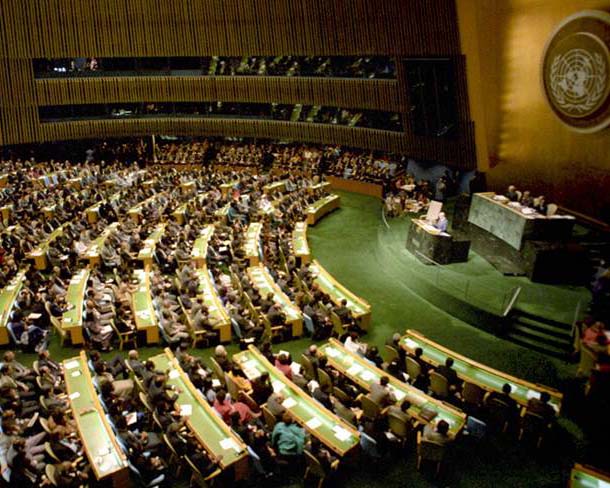 United States has officially announced the suspension of diplomatic cooperation with Russia on Syria. That brings to an end coordination of efforts to counter terrorism and also the ceasefire that was in place.
United States has officially announced the suspension of diplomatic cooperation with Russia on Syria. That brings to an end coordination of efforts to counter terrorism and also the ceasefire that was in place.
Basically, it seems, Washington failed to distinguish between Jabhat an-Nusra and the so-called moderate rebels. Russia, on the other hand, has failed to fulfill its commitments. Irre-spective of whether this is due to lack of influence on Damascus, Russia has driven itself to a narrow corridor with not so well thought out policy. It seemed to be following Napoleon’s logic of jumping into the fray and then figuring out what to do next.
There have been miscalculations, difference over stated and real objectives in the Syrian conflict while the geopolitical intrigues and mistrust have brought about the paralysis of the entire political process.
The UN has failed in its mission due to many reasons including tension between global players such as Russia and the US. This has been exacerbated by the opposition’s lack of be-lief in any talks with Damascus and the UN’s failure to invoke the international system.
A new round of talks was scheduled to be held in the end of August but is now unlikely in the near future. Under these circumstances, which are pushing the world to the brink of a global conflict, we need more than ever the strong a truly powerful United Nations.
The election of the new Secretary General of the UN deserves special attention. Ban Ki-moon’s successor will not only inherit unresolved conflicts but also the full new pack of rapidly developing threats coming from two superpowers.
The problem is that while promoting their candidate countries are guided not by the desire to strengthen the UN as an institution, to enable it to tackle global threats, but instead fol-low their own interests. The US seems to be interested in a female candidate to occupy the chair, while Russia promotes Eastern European candidate.
The leader of the UN should have enough courage to push the entire organization toward reforms. For this the UN needs a very determined and resolute person who is ready to take risk and bear the responsibility for each step taken and its consequences. The new UN Sec-retary General should be truly independent and try to return to the UN its damaged reputa-tion.
The new Secretary General should also be as active as possible in the media, competing with the major world leaders in popularity. Theoretically he or she should be a well-known per-sonality with an unblemished reputation and enjoy universal esteem. The UN needs a leader that helps the world body truly serve the cause of peace, not interests of any player or a group of players.
The problem is that among the candidates to the Secretary General there is no figure that would correspond to all of these parameters. It is likely that the UN will continue to face the same challenges, which means it will continue to become more and more irrelevant and far removed from the global agenda leaving crisis resolution to the US and its allies. Russia, on the other hand, will try to bring debates back to the UN, trying to use the advantages of the UN in its current form; based on the same mechanism as in 1945.
The debates over comprehensive UN reforms have continued for too long and will not change no matter who is elected. However, it is the right moment to fully realize the fundamental importance of the UN.
The conflict seems to have reached a dead-end in Syria with all sides having little under-standing of what to do next. What is clear is that the country will be generously fueled with arms. The US and Russia tensions and mutual accusation will continue to rise.
Even as diplomacy stalls, Russia continues to deploy its advanced anti-missile and anti-aircraft system SA-23 Gladiator and bombers. This time the air defense system is deployed not just to protect Russia’s contingency, but Damascus and the ruling regime even as the already deployed S-400’s purpose is changing as well.
Russia will try all possible means to prevent the repeat of Libyan scenario in Syria. The sig-nificant build-up of weapons in Syria and the deepening rivalry enhances the possibility of the Russian collision with coalition forces in the air.
To prevent the worst case scenario, we need the strong and mighty UN, to convincingly en-courage the parties involved to understand the dangerously developing situation and act to ensure peaceful coexistence. Otherwise it seems like we are all doomed.
Article published in Al Arabiya English
https://english.alarabiya.net/en/views/news/middle-east/2016/10/05/Can-new-UN-Secretary-General-help-resolve-the-Syrian-crisis-.html
Geneva talks: Light in Syria’s dark tunnel?
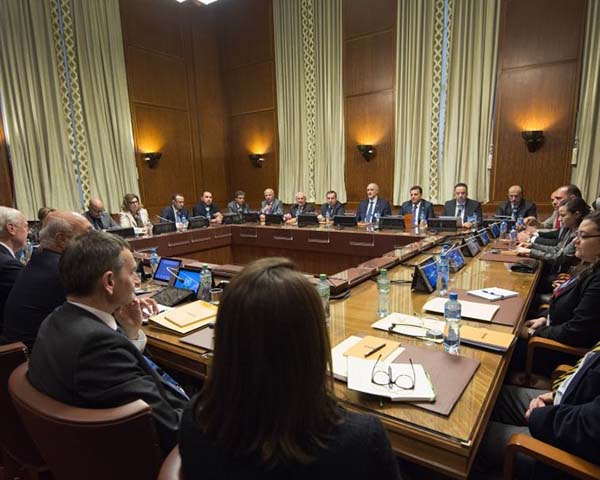 A new round of Geneva talks started on Wednesday, with the general environment more or less positive. Increased ceasefire violations have not disrupted the peace process until now - hopefully, neither will the provocative offensives of Jabhat al-Nusra and rebel groups linked to it. However there are deep concerns over the rumors that Damascus is preparing for the offensive on the rebel stronghold of Aleppo.
A new round of Geneva talks started on Wednesday, with the general environment more or less positive. Increased ceasefire violations have not disrupted the peace process until now - hopefully, neither will the provocative offensives of Jabhat al-Nusra and rebel groups linked to it. However there are deep concerns over the rumors that Damascus is preparing for the offensive on the rebel stronghold of Aleppo.
Syria: Russia is withdrawing in order to stay
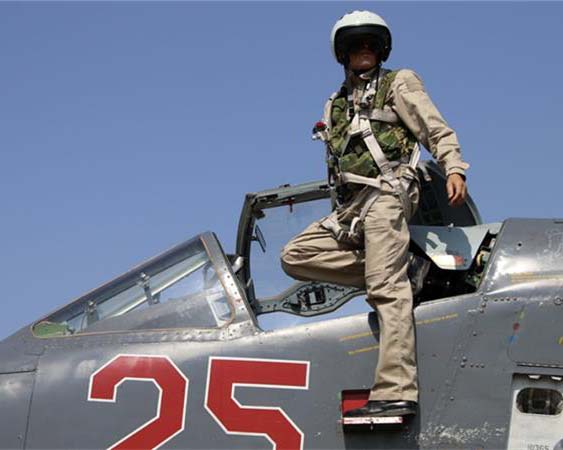 Russia’s withdrawal from Syria was not a surprise to those who have been following it foreign policy. In Oct. 2015, President Vladimir Putin said: “Our goal... is to stabilize the legitimate power in Syria, and to create conditions for the search for political compromise.”
Russia’s withdrawal from Syria was not a surprise to those who have been following it foreign policy. In Oct. 2015, President Vladimir Putin said: “Our goal... is to stabilize the legitimate power in Syria, and to create conditions for the search for political compromise.”
Balance of power
Russia has returned to the Middle East and will not leave, especially since it feels that most of its regional plans are being successfully implemented.
Maria Dubovikova











